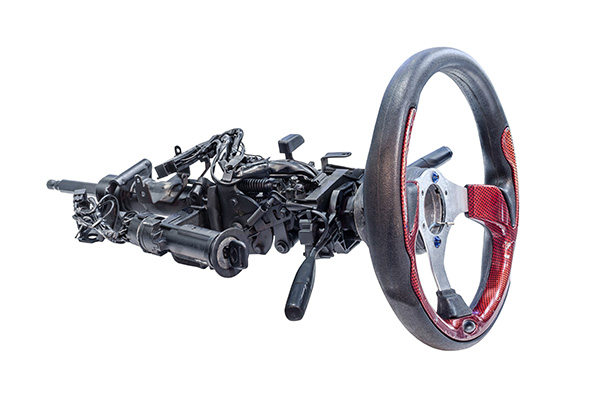
Have you ever jumped into a brand-new car, expecting a smooth and agile driving experience, only to find the steering feels... disconnected? This lack of responsiveness is a common gripe among car enthusiasts and everyday drivers alike. We will explain why modern cars feel less responsive when steering and what factors contribute to this sensation.
The Shift to Electric Power Steering
One of the primary reasons modern cars feel less responsive is the widespread adoption of electric power steering (EPS) systems. Traditional hydraulic power steering systems provided a direct mechanical connection between the steering wheel and the wheels, giving drivers a more tactile and connected feel. EPS, on the other hand, relies on electric motors and sensors to assist with steering, which can sometimes result in a more detached experience.
The shift to EPS is driven by several benefits, including improved fuel efficiency, reduced weight, and easier integration with advanced driver-assistance systems (ADAS). However, these systems often prioritize comfort and ease of use over road feedback, leading to a less engaging driving experience. While some high-end vehicles have advanced EPS systems that attempt to mimic the feel of hydraulic systems, many drivers still notice a significant difference.
Advanced Driver-Assistance Systems (ADAS)
Modern vehicles are packed with ADAS features designed to make driving safer and more convenient. Lane-keeping assist, automatic parking, and adaptive cruise control are just a few examples of these technologies. While ADAS can enhance safety and reduce driver fatigue, they can also contribute to a feeling of disconnection from the road.
Lane-keeping assist, for instance, can apply small steering corrections to keep the car centered in its lane. While this is great for safety, it can sometimes make the steering feel less responsive and more robotic. Drivers may feel as though the car is making decisions for them, which can diminish the sense of control and engagement.
Increased Vehicle Weight
Modern cars are generally heavier than their predecessors, thanks to the addition of safety features, larger dimensions, and increased use of sound-deadening materials. This extra weight can negatively impact the responsiveness of a vehicle's steering. Heavier cars require more effort to change direction, which can make the steering feel sluggish and unresponsive.
Manufacturers have attempted to counteract this by tuning suspension systems and using lightweight materials in key areas. However, the fundamental physics of a heavier vehicle means that it will never feel as nimble as a lighter one. This trade-off between safety, comfort, and steering responsiveness is one that manufacturers and drivers have to navigate.
Suspension Tuning
Suspension systems in modern cars are often tuned for comfort and stability rather than sharp handling. Manufacturers aim to create a smooth and pleasant ride for the majority of drivers, which can sometimes come at the expense of steering feel. Soft suspension settings can absorb road imperfections well but can also make the car feel less responsive during spirited driving.
Performance-oriented models typically feature stiffer suspension setups that provide better road feedback and more precise handling. However, these models are often the exception rather than the rule. For most drivers, the comfort-oriented suspension tuning in their cars contributes to a more relaxed but less engaging driving experience.
Is your car's steering feeling off? Schedule an inspection at Torque Automotive to ensure everything is in top shape for a smoother drive.